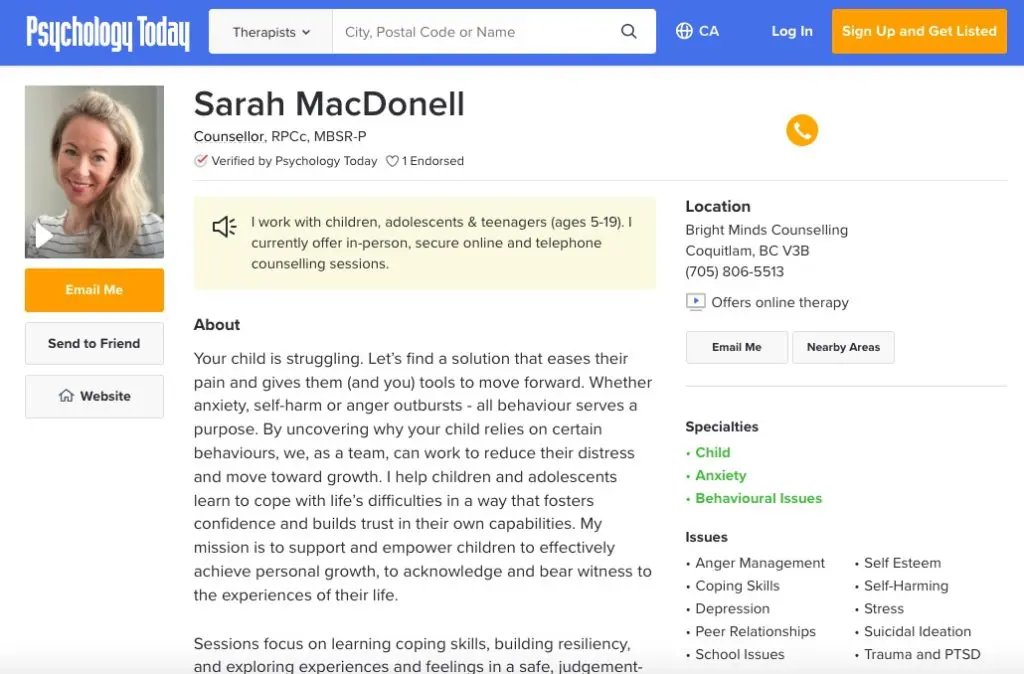“It’s sometimes okay to be uncomfortable,” my mentor said to me while we were talking about my driving anxiety. While the conversation had nothing to do with counselling, it was extremely relevant to therapy.
The phrase struck a chord with me and I began thinking about how change can be uncomfortable. Everyone goes through changes in life but sometimes even positive changes can feel awkward or uncomfortable. So why do we push ourselves to change? Why should we make ourselves purposely uncomfortable? I believe the answer is simple: to grow. Growth and change are constant and happen at every stage of life. Children grow taller and sometimes experience growing pains. Teenagers go through the challenging process of picking a post-secondary institution. Young adults evaluate and choose a future career path. Life is always presenting challenges that push adults to change while feeling discomfort akin to growing pains.
The change that led me to Counselling

I’m Samara Manhas, and I’ve been a student of the Counselling Therapist diploma program for six months. I can say from my personal experience that change doesn’t happen overnight. I was previously enrolled in a post-secondary school elsewhere but my battles with anxiety and depression prevented me from succeeding. It led me to realize that I wanted to help those who were facing the same challenges I was, so I chose the counselling career.
My favourite part of the counselling program has been the work I’ve been doing as part of my practicum at Moving Forward Family Services (MFFS). Meeting with real clients and having the opportunity to help others has been incredibly rewarding. It was in my first session with a client that I truly knew I was in the right place.
Facilitating change as a Counselling intern
An important aspect of my work as a Counselling intern involves helping clients through change. Clients experience discomfort when they begin work in therapy. Every time they challenge negative thoughts or exercise new beliefs, they’re learning to exercise a new muscle. One of the ways I help clients do this is by paying conscious attention to their thoughts and finding ways together to dispute or change a negative thought into a positive one. This can be very challenging – sometimes to the point where it feels easier to just give up and avoid any potential for growth. But as clients continue therapy and begin to see progress in themselves, they’re able to acknowledge that while it was difficult to begin making those small changes, seeing how those changes have helped them grow is worth it.
Another strategy I like to use with my clients to help them track their growth is journaling at least once a week. We use the journal to look at the progress from when therapy began to how they’re feeling as therapy continues. This helps with seeing their growth progress.
Be with discomfort
Everyone experiences growth and change as inevitable parts of life. I believe that to grow and change, we must be okay with the feelings of discomfort accompanying change. It takes so much work to change negative thoughts but the reward after working through the most uncomfortable feelings is also the highest. Continuously working on yourself while reminding yourself to remain self-aware isn’t easy but it pays off. It involves self-reflection and asking yourself, “How is this thought or behaviour helping me?”
People sometimes think once they’ve completed work on themselves in therapy, the process is over and they’re essentially cured. However, the process of growth and change doesn’t end when therapy ends. It doesn’t end because you read the last page of a self-help book. It doesn’t end because the podcast is over. Fostering and nurturing a healthy mind is a lifelong commitment.
I believe that change happens no matter what, whether we’re ready or not. Many people are uncomfortable with the process, steps and actions needed to implement change. Is positive change easy? No, absolutely not. But it’s worth it!
Check out a video of our Counselling Therapist Program.











